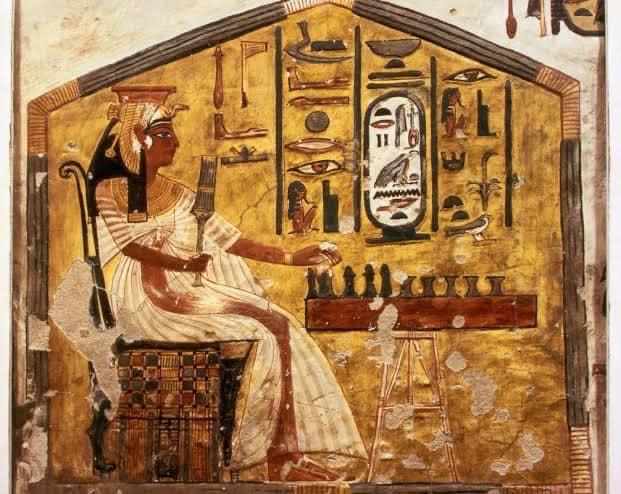Ancient Egyptians were aware that the function of women in the universal order is a sacred one. Without her, life would not have continued. They revered women as deities, Secretary-General of the Supreme Council of Antiquities Mostafa Waziry said.
He added in his study, issued on the occasion the International Women’s Day, that women in ancient Egypt enjoyed many forms of equality and social justice in a way that distinguished them from women of other ancient civilisations.
“The mother in ancient Egypt shared with her husband the upbringing and care of children during their childhood and youth,” the study says.
“One of the wise men of ancient Egypt advised his son, saying: “Double the quantity of bread for your mother and carry her if you can as she carried you, as long as she bears your burden.”
According to the study, the wife was the mistress of the house. The ancient Egyptian called her the “lady of the house”. A wise man recommended preserving the dignity of the wife in the presence of her children. “Do not make your son laugh or cry over his mother.”
In his study, Waziry explained that religious literature embodied the virtue of the mother in carrying the burden of raising her child in the person of the deity Isis who embraced her son Horus following the killing of his father. She hid him in the jungles of the Delta until he grew up, and then she helped him recover his father’s throne.
The study indicates that some women joined their husbands in supervising their own business. Some women assumed honorary and practical positions in the royal palaces, and took the titles of bridesmaids and acquaintances of kings.
Women had the rights of inheritance, testimony, ownership, buying and selling, and all rights in various transactions, according to the study.
They went out to the markets, engaged in buying and selling, attended parties and banquets, played music, sang and practised sports.
Some women also held important positions in the state and worked in professions such as the judiciary and others, like Nebet, who was a vizier during the late Old Kingdom of Egypt.
The study noted that the Egyptians linked science and knowledge to some of their female deities. They considered the deity Seshat, the goddess of writing and measurement. They also attributed to the goddess Isis knowledge, writing and arithmetic as well. They mentioned that she said: “My father guided me to the paths of knowledge”.
The symbol of justice and truth was embodied in ancient Egypt in the form of a female deity, Maat, the study says.






Discussion about this post